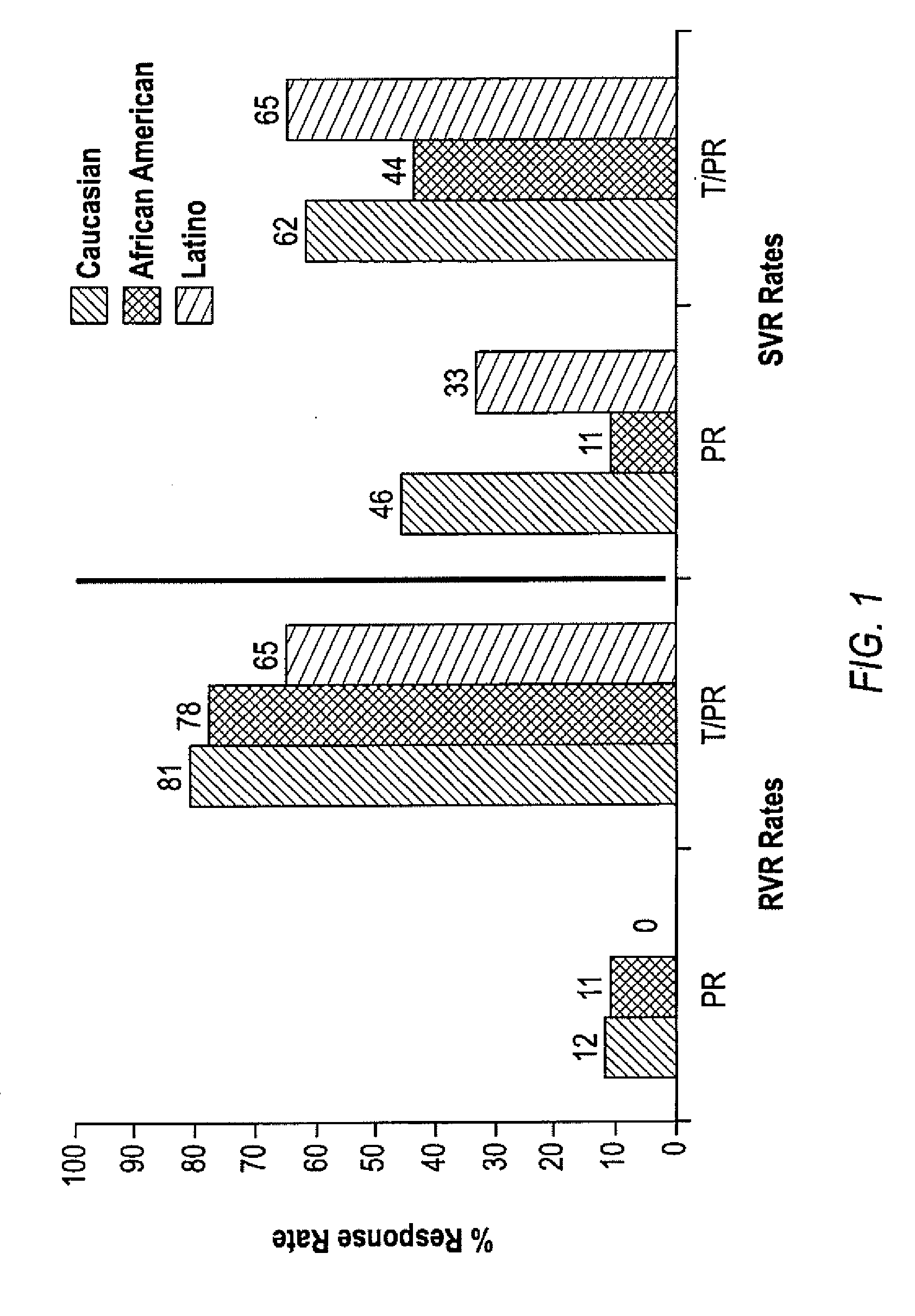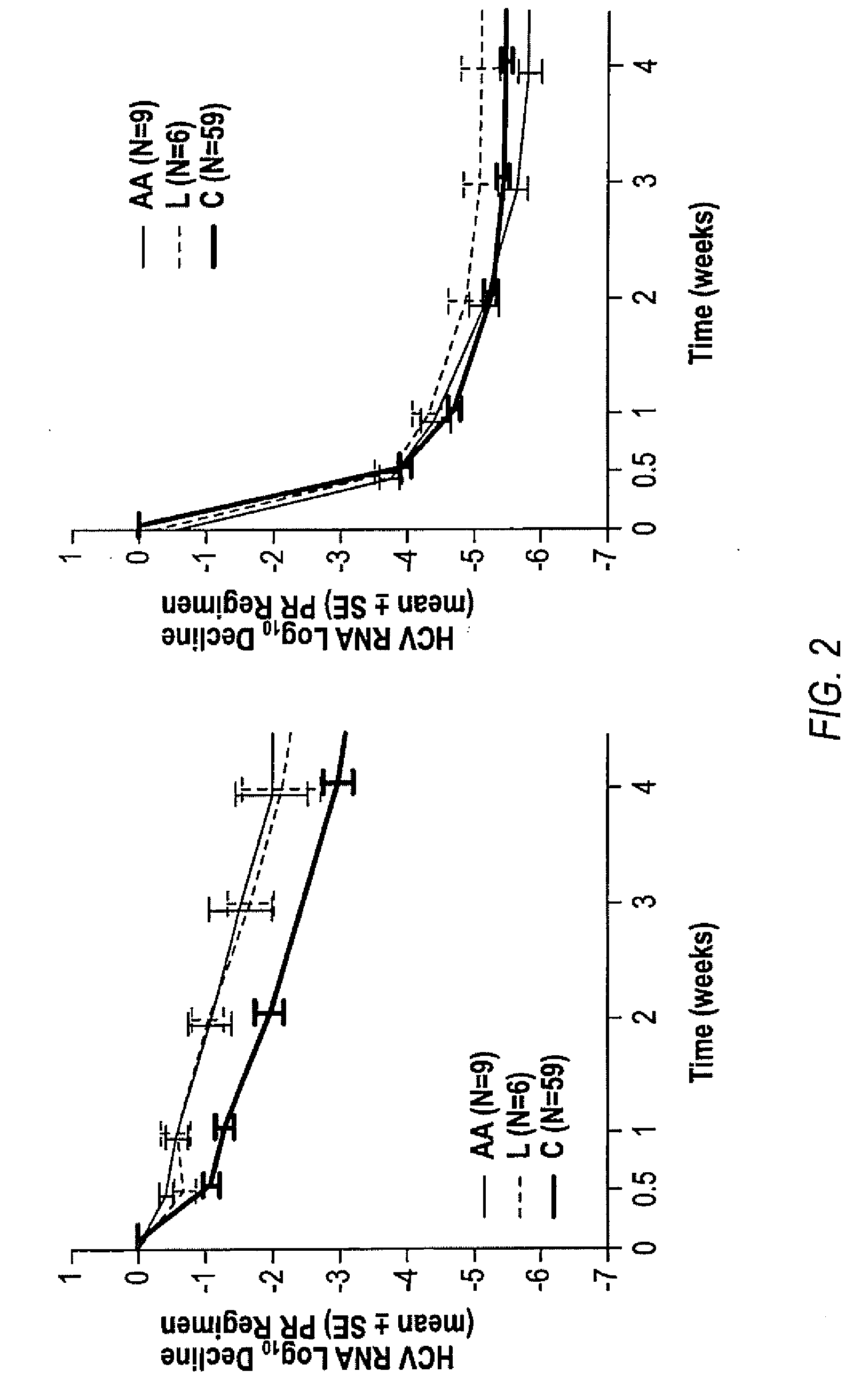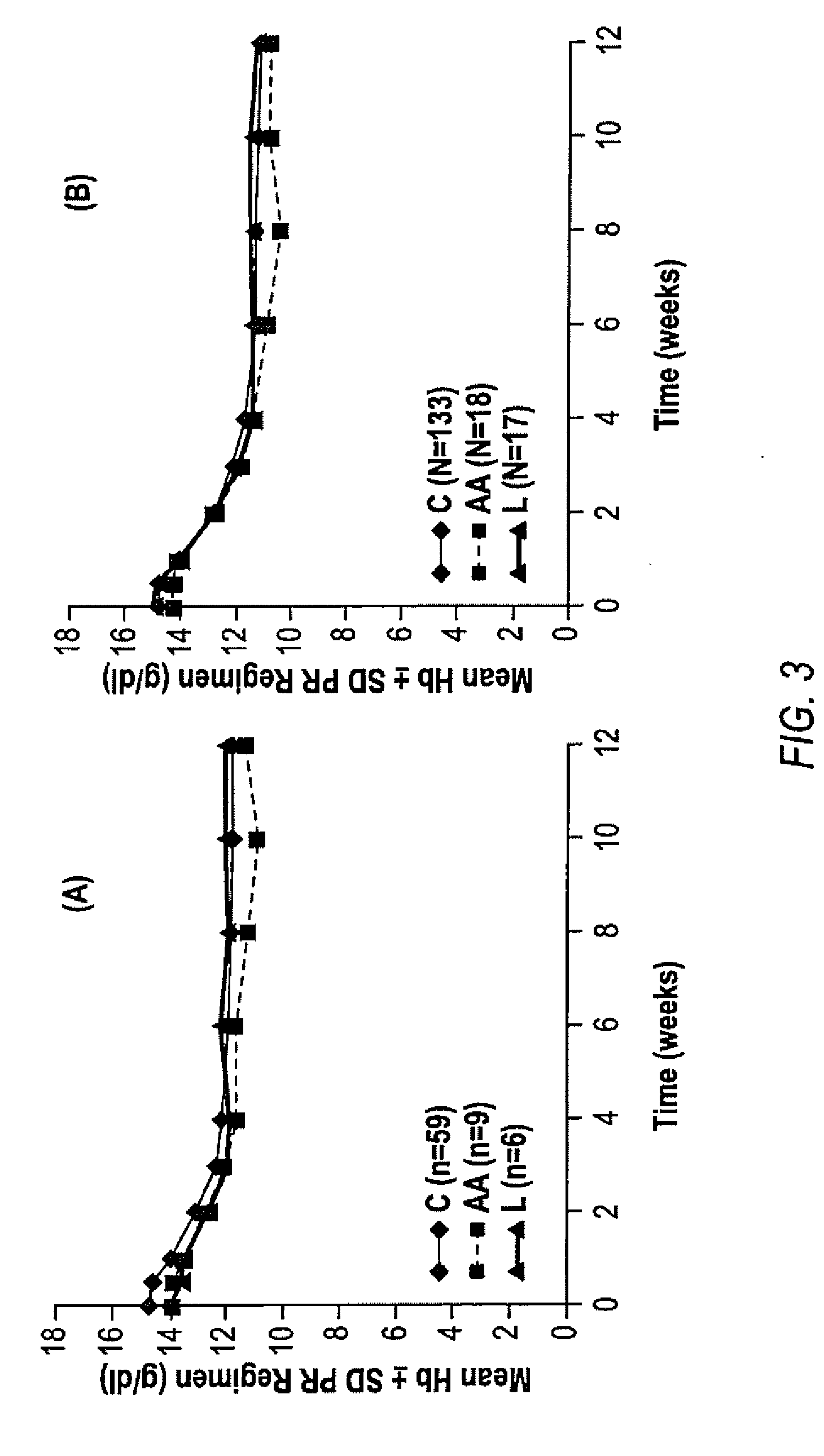HCV Combination Therapies
a combination therapy and hcv technology, applied in the field of combination therapies, can solve the problems of inability to broadly effective treat the debilitating progression of chronic hcv, uncertainty about the prospects of effective anti-hcv vaccines, and significant side effects of interferons, so as to and reduce the risk of viral breakthrough
- Summary
- Abstract
- Description
- Claims
- Application Information
AI Technical Summary
Benefits of technology
Problems solved by technology
Method used
Image
Examples
example 1
PROVE 1 and PROVE 2 Clinical Studies
[0166]PROVE 1 is an ongoing, four-arm, Phase 2b clinical trial of 250 treatment-naive genotype 1 HCV patients with a primary objective to assess the proportion of patients who achieve SVR, defined as undetectable (less than 10 IU / mL, as measured by the Roche TaqMan(R) assay) HCV RNA 24 weeks after the completion of dosing. The trial is assessing patients who receive telaprevir-based treatment regimens of 12, 24 and 48 week durations, compared to a 48-week control arm of pegylated-interferon and ribavirin. PROVE 1 is being conducted at more than 30 clinical centers in the U.S.
[0167]Baseline patient characteristics were similar across telaprevir treatment and control arms in PROVE 1. Twenty percent of those treated with telaprevir were either Hispanic (10%) or African American (10%). In the control arm, 8% of patients were Hispanic and 12% were African American. Median HCV RNA at entry was similar across all arms (6.6 Log 10 IU / mL in telaprevir trea...
example 2
Tolerance and Pharmacokinetics Studies
[0181]VX-950 was examined in a randomized, double-blind, placebo-controlled single-dose escalation study. 25 healthy male volunteers were enrolled and each received multiple single doses of VX-950 (at least 7 days apart, 3 doses of VX-950 at increasing dose levels) and 1 dose of placebo.
[0182]Doses of 25 mg to 1250 mg were evaluated. A dose escalation scheme was used that combined dose doubling and modified Fibonacci to be aggressive in the lower dose range and conservative in the higher dose range.
[0183]The results showed that VX-950 was well tolerated at all dose levels. No serious adverse events were reported during the study, and there did not appear to be an increase in adverse events with increasing dose levels.
example 3
Viral Responses in African-Americans, Latinos and Caucasians
[0184]African Americans and Latinos have much lower sustained virologic response (SVR) rates to current treatment for chronic hepatitis C virus (HCV) compared to Caucasians. A sub-analysis of African Americans (AA), Latinos (L) and Caucasians (C) shows that the addition of telaprevir to the peginterferon-alfa and ribavirin (PR) treatment leads to increased SVR rates in the PROVE 1 trial.
[0185]In the study, patients received TVR 750 mg Oh with peginterferon alfa 2a 180 μg / week and ribavirinI000-1200 mg / day, in naive subjects with genotype 1 HCV infection. Subjects were randomized into 4 arms (FIG. 5). The control arm (n=75) received 48 weeks of PR (PR arm). The 3 other arms all received TVR for 12 wks in combination with 12, 24 or 48 wks of PR (T / PR arm, n=175). This analysis focuses on the viral responses and pharmacokinetics of African American, Latino and Caucasian subjects in these arms. Race and ethnicity were determine...
PUM
| Property | Measurement | Unit |
|---|---|---|
| Time | aaaaa | aaaaa |
| Time | aaaaa | aaaaa |
| Time | aaaaa | aaaaa |
Abstract
Description
Claims
Application Information
 Login to View More
Login to View More - R&D
- Intellectual Property
- Life Sciences
- Materials
- Tech Scout
- Unparalleled Data Quality
- Higher Quality Content
- 60% Fewer Hallucinations
Browse by: Latest US Patents, China's latest patents, Technical Efficacy Thesaurus, Application Domain, Technology Topic, Popular Technical Reports.
© 2025 PatSnap. All rights reserved.Legal|Privacy policy|Modern Slavery Act Transparency Statement|Sitemap|About US| Contact US: help@patsnap.com



